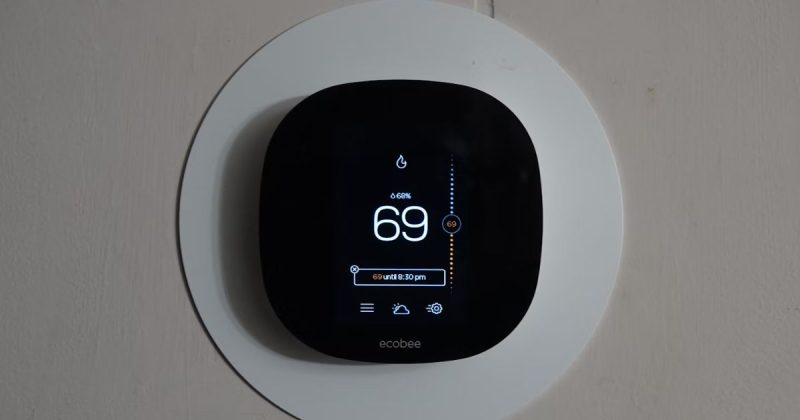As the smart home market continues to evolve in 2025, consumers are looking for reliability, innovation, and seamless integration with their daily lives. Whether it’s a voice assistant, smart lighting, security systems, or home automation devices, choosing a trusted brand can make all the difference. Below are some of the top smart home brands that have earned reputations for quality, reliability, and cutting-edge technology in 2025.
Best Smart Home Brands Ranked for 2025
1. Amazon (Alexa)
Amazon Alexa is a voice-controlled virtual assistant developed by Amazon that can answer questions, control smart home devices, play music, set reminders, and much more. Powered by AI, Alexa integrates with Amazon Echo and other devices, making everyday tasks hands-free and convenient.
Best For: Smart assistants, voice-controlled home automation, and smart security.
Key Products:
- Ring Video Doorbells (smart doorbells with video and motion detection).
- Amazon Smart Thermostat.
- Amazon Echo Studio (smart speaker).
Why It’s Worth It:
- Alexa Integration: Amazon’s Alexa remains one of the most reliable smart assistants, widely supported across third-party devices.
- Seamless Home Integration: Amazon offers a wide range of smart products, including smart lights, thermostats, plugs, and cameras, all controlled by Alexa.
- Security Focus: Ring, a part of Amazon, offers cutting-edge video doorbells and security cameras.
- Continued Updates: Amazon consistently updates Alexa, making it more intelligent and adding new capabilities regularly.
Pros:
- Affordable pricing across the board.
- Strong ecosystem of compatible devices.
- Works well with numerous third-party devices.
- Regular software updates.
Cons:
- Privacy concerns due to data collection.
- Ring products have had issues with security vulnerabilities in the past.
2. Google Nest
Google Nest is a smart home brand offering AI-powered devices like speakers, displays, thermostats, and security cameras, enhancing home automation and convenience.
Best For: Smart thermostats, security cameras, smart speakers, and home automation.
Key Products:
- Google Nest Learning Thermostat.
- Google Nest Cam (indoor/outdoor security cameras).
- Google Nest Hub (smart display).
Why It’s Worth It:
- Seamless Integration with Google Services: If you’re already using Google services (like Google Assistant, Google Calendar, or Gmail), the Nest lineup integrates perfectly with your existing ecosystem.
- Energy Efficiency: Nest’s smart thermostats are some of the best for saving energy by learning your heating and cooling preferences.
- Security and Monitoring: Nest cameras and the Nest Protect smoke detector provide reliable, smart security features.
Pros:
- Top-notch energy-saving features, especially with thermostats.
- Easy setup and user-friendly app.
- Deep integration with Google Assistant.
- High-quality cameras with smart alerts.
Cons:
- The Nest Cam may be pricier compared to other brands.
- Privacy concerns regarding data collection with Google devices.
3. Apple HomeKit
Apple HomeKit is a smart home platform that lets users control compatible devices like lights, locks, and thermostats through the Home app and Siri, ensuring seamless automation and security.
Best For: Apple ecosystem users, privacy-conscious consumers, seamless integration with iOS devices.
Key Products:
- Apple HomePod mini (smart speaker with Siri).
- Logitech Circle View Camera (HomeKit compatible security camera).
- Eve Energy Smart Plugs (energy-efficient plugs).
- Philips Hue Lights (compatible with HomeKit).
Why It’s Worth It:
- Privacy First: Apple prioritizes privacy in its smart home devices, with end-to-end encryption for HomeKit-enabled devices.
- Best for Apple Users: Apple HomeKit integrates seamlessly with iPhones, iPads, and other Apple products, ensuring a smooth experience across the entire ecosystem.
- Smart Automation: The Apple Home app allows users to automate their homes, control smart devices, and monitor home activity all from their Apple devices.
Pros:
- Strong privacy protections.
- Integration with the Apple ecosystem (iPhones, iPads, and Macs).
- Voice control with Siri.
- High-quality smart speakers (HomePod mini).
Cons:
- Limited compatibility with non-Apple devices.
- Fewer smart home products come directly from Apple (compared to Amazon or Google).
4. Philips Hue
Philips Hue is a smart lighting system that offers customizable LED bulbs. It allows users to adjust brightness, color, and schedules via an app or voice control for enhanced ambiance and convenience.
Best For: Smart lighting solutions.
Key Products:
- Philips Hue White and Color Ambiance Bulbs.
- Philips Hue Sync Box (for syncing lighting with media).
- Philips Hue Bridge (central hub for controlling lights).
Why It’s Worth It:
- Superior Lighting Quality: Philips Hue is one of the most reliable smart lighting brands on the market. Their bulbs offer a wide range of colors and brightness levels, all customizable via the app or voice commands.
- Customization and Syncing: The Philips Hue system allows for complex automation, such as syncing your lights to music or movies, making it perfect for both ambiance and entertainment.
- Reliable Integration: Compatible with Amazon Alexa, Google Assistant, and Apple HomeKit.
Pros:
- Excellent color and brightness range.
- High compatibility with most smart home systems.
- Solid automation and customization options.
Cons:
- Expensive compared to other smart lighting brands.
- Requires a Hue Bridge for full functionality.
5. Samsung SmartThings
Samsung SmartThings is a smart home platform that connects and controls a wide range of devices, including lights, locks, and cameras, through an app or voice commands, enabling seamless automation and integration.
Best For: Home automation, integration with various smart devices.
Key Products:
- Samsung SmartThings Hub (central hub for automating smart devices).
- Samsung SmartThings Camera (smart camera).
- Samsung SmartThings Doorbell.
- SmartThings Smart Plugs and Bulbs.
Why It’s Worth It:
- Cross-Brand Compatibility: SmartThings stands out for its ability to integrate with a wide variety of third-party devices, including those from Amazon, Google, and other brands.
- Home Automation Hub: The SmartThings Hub allows users to control a wide range of devices, from lights and locks to cameras and thermostats, creating a connected ecosystem.
- Smart Security Features: Samsung also provides reliable security cameras, doorbells, and sensors that integrate seamlessly with the SmartThings app.
Pros:
- Wide compatibility with third-party devices.
- Robust automation and scheduling options.
- Strong security monitoring features.
Cons:
- The user interface can be complicated for beginners.
- Some devices require additional hubs or bridges for full functionality.
6. Ring
Ring is a home security brand known for its video doorbells and cameras, allowing users to monitor and communicate with visitors remotely through an app, enhancing home safety and convenience.
Best For: Home security, video doorbells.
Key Products:
- Ring Video Doorbell Pro 3.
- Ring Stick Up Cam (indoor/outdoor security camera).
- Ring Alarm Security Kit.
- Ring Floodlight Cam (smart security light and camera).
Why It’s Worth It:
- Top-tier Security: Ring is a leader in smart home security, offering high-quality video doorbells and cameras with motion detection and HD video.
- Affordable and Scalable: Ring offers affordable entry-level options, and its security system can easily be expanded as your needs grow.
- Easy Integration: Ring products work seamlessly with Alexa and other Amazon smart home products.
Pros:
- Excellent video and audio quality for doorbells and cameras.
- Affordable options for home security.
- Works well with Alexa and other Amazon products.
- Customizable alerts and monitoring features.
Cons:
- Privacy concerns due to data sharing with law enforcement (optional feature).
- Subscription is required for cloud storage and advanced features.
- Some products can be more expensive than non-smart alternatives.
7. Wyze
Wyze offers affordable smart home devices like cameras, bulbs, and sensors. Its app allows easy control to enhance home security and automation.
Best For: Budget-friendly smart home products with solid performance.
Key Products:
- Wyze Cam V3 (affordable security camera with night vision).
- Wyze Smart Plug.
- Wyze Thermostat.
- Wyze Smart Bulb.
Why It’s Worth It:
- Affordable Smart Home Devices: Wyze is known for offering great value smart home products that don’t compromise on quality. The Wyze Cam, for example, is often considered one of the best budget security cameras available.
- Cloud Services: Wyze offers free cloud storage for its cameras, making it an attractive option for those who don’t want to pay extra for footage storage.
- Solid Performance: Despite being budget-friendly, Wyze devices are reliable, have solid features, and are compatible with Amazon Alexa and Google Assistant.
Pros:
- Affordable without sacrificing functionality.
- Excellent value for money.
- Free cloud storage for security cameras.
- Easy setup and user-friendly app.
Cons:
- Some products can be less durable than those of higher-end competitors.
- Limited product range compared to larger brands like Amazon or Google.
- Occasional quality control issues.
8. Ecobee
Ecobee is a smart thermostat brand that optimizes home temperature for comfort and energy savings, with features like voice control, remote sensors, and app integration.
Best For: Energy-efficient smart thermostats.
Key Products:
- Ecobee SmartThermostat with Voice Control.
- Ecobee Smart Sensors (for better room temperature regulation).
- Ecobee Smart Light Switch.
Why It’s Worth It:
- Energy Efficiency: Ecobee’s thermostats are designed to save on energy costs while maintaining comfort. They learn your patterns and adjust accordingly.
- Voice Control Integration: With Alexa built-in, Ecobee allows you to control your thermostat and other smart home devices using voice commands.
- Additional Sensors: The inclusion of additional temperature sensors ensures that your home stays comfortable throughout, even in rooms away from the thermostat.
Pros:
- Superior energy-saving capabilities.
- Integration with multiple smart home ecosystems.
- Simple and easy to use.
Cons:
- Pricey compared to traditional thermostats.
- The app can be slow at times.
9. Arlo
Arlo is a top-tier security brand offering high-definition cameras, video doorbells, and floodlight cameras designed for both indoor and outdoor monitoring.
Best For: Home security, smart cameras.
Key Products:
- Arlo Pro 4 (wireless security camera).
- Arlo Video Doorbell.
- Arlo Floodlight Camera.
Why It’s Worth It:
- Arlo’s security cameras provide excellent video quality, motion detection, and two-way audio. Their products are easy to install and integrate with other smart home systems.
- Arlo offers both subscription-based cloud storage and local storage options.
Pros:
- Excellent video quality, even at night.
- Wireless and easy to install.
Cons:
- Subscription is required for advanced features.
- Higher price point compared to other security cameras.
10. LIFX
LIFX offers smart lighting solutions known for their vibrant colors, easy setup, and direct Wi-Fi connectivity without needing a hub.
Best For: Smart lighting.
Key Products:
- LIFX Color A19 (smart bulb with millions of color options).
- LIFX Beam (smart light strips).
Why It’s Worth It:
- LIFX bulbs are energy-efficient, have high color accuracy, and are simple to control through an app or voice assistant. They don’t require a hub, making installation more convenient.
Pros:
- Bright, vibrant colors.
- No hub is required for use.
Cons:
- More expensive than other smart bulbs.
- Shorter lifespan compared to traditional bulbs.
Choosing the Right Smart Home Brand for Your Needs
When considering smart home brands in 2025, there are plenty of reliable options to choose from. Whether you’re looking for Amazon’s Alexa, Google Nest for energy efficiency, or Apple HomeKit for privacy, each brand offers something unique. If home security is your priority, Ring and Wyze are excellent choices. For a complete smart home ecosystem, Samsung SmartThings and Amazon provide highly compatible and customizable solutions. Ultimately, selecting the best brand depends on your specific needs, budget, and the level of integration you’re looking for.





